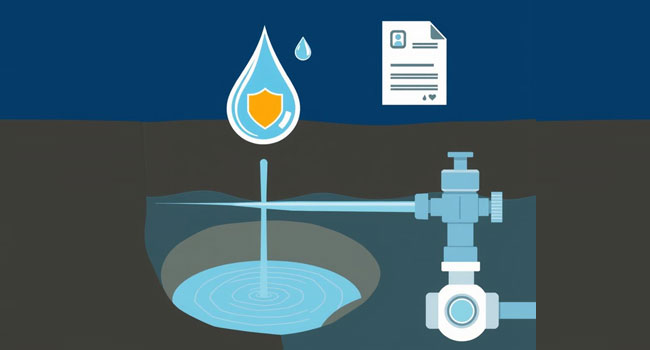- +91-8882964379
- info@certilize.com
Used Oil Recycling Plant

Introduction
Due to the fast industrialization, growth of transportation industries and heavily dependence on machines, the quantities of used lubricating oils and waste engine oils are produced in enormous amounts throughout India. Such oils when not disposed of scientifically cause many problems to the environment and the health of the people. Nevertheless, the used oil is a precious resource; in the case of being piped to an Oil Recycling Plant, it could be recycled into base oil, lubricants, or fuel oil.
Recycling of oil can save a great deal of imported crude oil dependency and circular economy. Hazardous Waste Management Rules, 2016 require all used oil to be disposed by the authorized recyclers, which is mandatory by Central Pollution Control Board (CPCB) and Ministry of Environment, Forest and Climate Change (MoEF&CC).
Not only does it pay to install Used Oil Recycling Plant, but it is also a purposeful contribution to environmental sustainability. CERTILIZE has provided end-to-end consulting, licensing, plant and equipment to enter oil recycling business in India.
Licenses and Certifications
- Company Registration – Proprietorship, Partnership, LLP or Private limited company
- Consent to establish (CTE) and Consent to operate (CTO) – Under the Water Act, 1974 and Air act, 1981, issued by State Pollution Control Board (SPCB)
- Hazardous Waste Management Rules, 2016 authorization – To collect, store and recycle used oil and lubricants
- Factory License – In case of the use of workers and powered machinery
- Fire and Safety NOC – Necessary because of combustibility of oil and fuel products
- Environmental impact Assessment (EIA) – Required where capacity >10 TPD
- Weight and Measurement approval – To calibrate input/output products
- GST Registration – Commercial compliance and billing
- ISO Certification – Quality and environmental management ISO 9001, ISO 14001 (optional but recommended)
- EPR Authorization – Registration with CPCB if combined with used oil of producers
The documentation is done by CERTILIZE and communicated to the Pollution Control Board to ensure compliance with all laws.
Name of the Machinery and Standard Cost
| Machine Name | Purpose | Approximate Cost (INR) |
|---|---|---|
| Oil Collection Tank & Filtration Unit | Initial storage and filter removal | ₹2,00,000 – ₹3,00,000 |
| Dehydration Unit | Removes moisture and water from used oil | ₹3,00,000 – ₹5,00,000 |
| Vacuum Distillation Reactor | Separates base oil and fuel oil fractions | ₹20,00,000 – ₹40,00,000 |
| Clay Treatment / Acid Neutralizer | Enhances purity and removes contaminants | ₹3,00,000 – ₹7,00,000 |
| Condensation & Cooling System | Converts vapour to oil | ₹4,00,000 – ₹6,00,000 |
| Oil Storage Tanks & Barrel Filler | For packaging and dispatch | ₹3,00,000 – ₹5,00,000 |
| Pollution Control Unit | Fume scrubber and emissions management | ₹2,00,000 – ₹4,00,000 |
Total Estimate Cost: Small Plant (1 to 3 TPD): ₹25–30 to 50 Lakhs; Medium Plant (5 – 10 TPD): ₹60 Lakhs to ₹1.2 Crores.
CERTILIZE offers ISI-certified machinery, technology license, installation and training.
Process Flow – Recycling of Used Oil
- Collection & Storage – Engine oils, transformer oil, hydraulic oil are deposited in drums/tankers
- Filtration & Pre-treatment – Eliminates suspended solids, dirt and free water
- Dehydration – Oil is warmed to eliminate the moisture and water
- Vacuum Distillation – Fractions separated in oil under vacuum: Base oil (SN 150/SN 500 grade), diesel-like fuel, light gases
- Optional Additional Treatment – Clay/Acid Treatment for additional cleansing, odor and color removal
- Cooling & Collection – Vapours condensed into reusable products
- Stock and Shipment – Processed oil stored and sold to industries
- Waste Management – Sludge and acid clay disposed of in hazardous landfill or cement kilns
Market Overview
- More than 2.5 million tonnes of used oil are produced in India annually, with a small fraction scientifically recycled
- Industries producing used oil: Automobile service centres, Railways, Power Plants, Heavy Engineering units, Marine transport
- Recycled Buyers and Products:
- Base oil (SN150/SN500) – Sold to lubricant manufacturers
- Diesel oil – Used as fuel in boilers and furnaces
- Recovered additives – For grease/lube blending
- Market Drivers:
- High lubricant demand in auto and industrial sectors
- Government-led circular economy initiatives
- Base oil import substitution (India imports ~70%)
- Regulated disposal requirements
EPR Benefits
- Under CPCB’s EPR framework, producers/importers must collect used oil
- Registered oil recyclers can sign MoUs with auto service centres, transport departments, and lubricant industries
- Advantages: High-value supply chain, carbon credit benefits, ESG reporting, and green branding
CERTILIZE assists with EPR registration, lubricant brand tie-ups, and automobile network integration for CSR.
Why CERTILIZE?
- Site planning and DPR preparation
- Coordination with pollution board and licensing
- Installations and machine servicing
- Training and SOPs for safe operations
- Branding and market linkage support
We have assisted more than 150 waste management companies in India to start profitable ventures.
CERTILIZE – India’s Trusted Waste Management Consultant: Documentation, commissioning, and operational support for legal, efficient oil recycling.
Frequently Asked Questions
-
Does one need a license with the Pollution Control Board?
Yes, CTE and CTO under Hazardous Waste Rules
-
Which kind of oil can be recycled?
Transformer oil, cutting oil, lubricants, used engine oil, hydraulic oil
-
Is it possible to do this in rural/industrial area?
Only in licensed industrial or hazardous waste areas
-
What are the possible hazards?
Requires closed systems, fire safety, PPE
-
How much profit?
20–35% margins depending on capacity and raw material cost
-
Can you sell used oil to industries?
Yes, if certified
-
Is skilled manpower necessary?
Yes, CERTILIZE provides training
-
What happens to sludge?
Sent to TSDFs or blended into cement kilns
-
Is subsidy possible?
Green incentives for MSME and waste management entities
-
Can recycled base oil be exported?
Yes, with DGFT licence and BIS compliance
